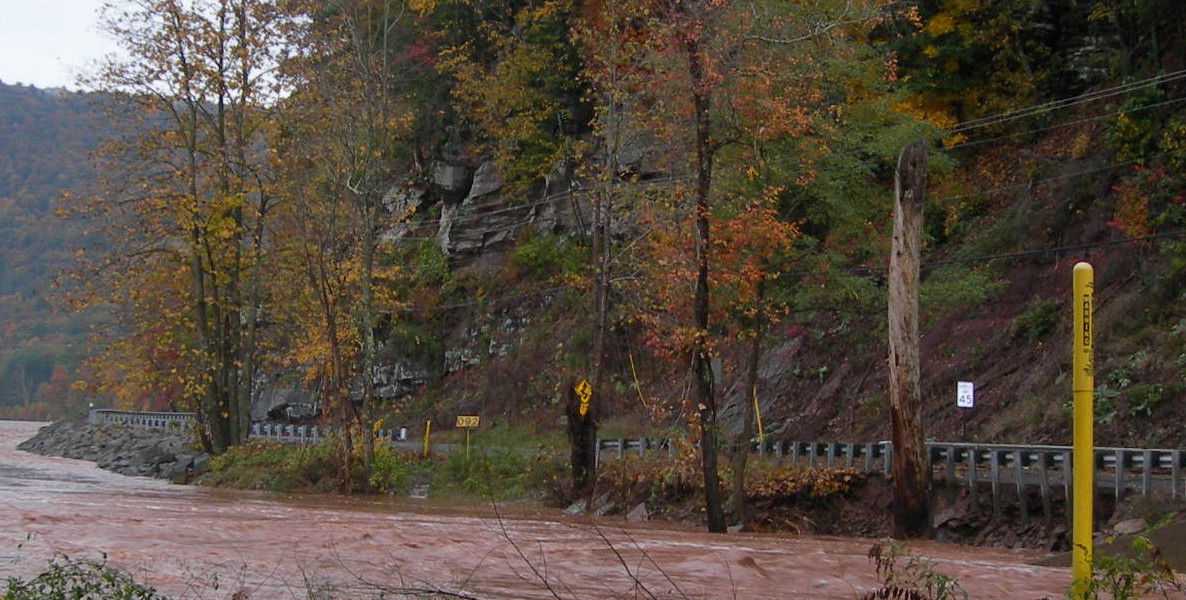In 2015, a mandatory retirement and two scandal-induced resignations from the state Supreme Court opened the way for the Democrats to flip three seats and firmly capture the Court’s majority. The election result immediately posed the question: After a long time of being out of power, what will be the effect of Democratic control of the state’s highest court?
The answer came this past June 20 when the Court delivered a reformist decision of stunning proportions in the case PA Environmental Defense Fund v. Commonwealth of PA.
This is a historic decision, transformative in substance and bold in process, and to political progressives in Philadelphia and across this state, it should give great encouragement to expect more from this new Court. The specifics of the Environmental Defense Fund case, which had been grinding along for five years, involved the spending of oil and gas revenues earned from Commonwealth-owned lands.
But that was on the surface. Underneath, the case had vast Constitutional implications because it offered the court the chance to fully empower our state Constitution’s long-suppressed Sec. 27, the Environmental Rights clause.
Let’s pause a moment to carefully read Article 1, Sec. 27:
“The people have a right to clean air, pure water, and to the preservation of the natural, scenic, historic and esthetic values of the environment. Pennsylvania’s public natural resources are the common property of all the people, including generations yet to come. As trustee of these resources, the Commonwealth shall conserve and maintain them for the benefit of all the people.”
For laypersons, reading court opinions is something like reading instructions to a treasure hunt conducted in a vast and ill-lit warehouse. But the June 20 Environmental Defense Fund decision is piled so high with rulings and implications for the future that it’s easy to see that the Court will be kept busy with follow-up cases for many years.
Writing for the majority in the Environmental Defense Fund decision, Justice Christine Donohue affirms that by virtue of this ruling, Pennsylvania’s citizens now possess “… environmental rights commensurate with their most sacred political and individual rights.”
As a first step, the Court’s decision demolishes the rhetorical tricks and arcane tests that for nearly 50 years have blocked the full implementation of the Environmental Rights Clause. One such barrier was the claim that unless the Legislature specifically passed a law enabling the enactment of Sec. 27, it then was not in effect. This sophistry had been stifling the voice of the people from the day in 1971 when voters overwhelmingly opted—by a nearly 4 to 1 vote—to add Sec. 27 among the hallowed Declaration of Rights in the state Constitution.
Writing for the majority in the Environmental Defense Fund decision, Justice Christine Donohue—one of the three Democratic Justices elected in 2015—affirms that by virtue of this ruling, Pennsylvania’s citizens now possess “… environmental rights commensurate with their most sacred political and individual rights.”
What had teed up this new Court’s decision, as Donohue implies, was an ugly episode in 2012, when Gov. Corbett and the Republican-controlled state Legislature had passed Act 13, a law that handed Marcellus shale gas drillers the authority to override local zoning in erecting drilling pads, even allowing these massive industrial complexes to be located within 500 feet of a school.
For several decades the state has allowed leases on public lands, mostly for conventional natural gas wells. The relatively modest fees have been plowed back into environmental programs. With the advent of the Marcellus shale gas boom, the state began to earn big bucks—several hundred million dollars a year in fees alone.
The majority opinion details the specific earnings from 2009 through 2015: State lands earned royalty fees of more than $926 million, of which, during those years, at least half was directed by the Legislature to General Fund programs. Both Governors Rendell and Wolf went along with this process but also showed their relative unease with devoting public lands purely to profit-making—at various points both Governors imposed temporary moratoriums on such leases.
In a land where “we the people” and “government of the people” are everyday phrases, it is actually rare to find instances where the law so clearly puts citizens in charge. And in this instance, unique to Pennsylvania, we citizens are now in charge of vast and critical topics in public affairs such as clean air, clean water, preservation of natural and historic resources.
Gov. Corbett, by contrast, openly embraced the process. No doubt that was because the Republican controlled state Legislature showed an eagerness to use these new funds to plug some of the massive holes in the state’s chronically underfunded budget, especially since “no-tax” forces have dominated the Republican caucuses.
Act 13 set up the Robinson Township V. Commonwealth case. Robinson, located in the gas fields out in Allegheny County, brought a suit which led the Commonwealth Court to vacate Act 13, finding that the Constitution’s guarantee of due process protected local zoning laws. The Robinson Township matter was then appealed by Gov. Corbett to the Supreme Court.
Then-Chief Justice Ronald Castille swerved away from his fellow Republicans and mustered two Democratic votes—enough to issue only a non-binding plurality opinion against Corbett. But he wrote a copious history of more than two centuries of brutal exploitation of Pennsylvania’s natural resources by unchecked business interests. He also decried as a sham the efforts to block the “plain language” meaning of Sec. 27. While nice tries in life don’t always get you much, in the law they can be made to matter. The current majority’s decision takes care to incorporate all the persuasive arguments Castille offered and locks them into their opinion.
Support the Environmental Defense FundDo Something
Looking into the language of the annual fiscal code bills, Justice Donohue points out that lawyers for the Republican leadership have pointedly inserted phrases—sending signals to the Courts—that authorize use of lease monies for General Fund purposes. Furthermore, the legislative Republicans filed an amicus brief in Environmental Defense Fund that made clear they viewed it as their exclusive prerogative to cut deals with the Governor on monies from state land leases.
Normally, spending decisions are a matter in which state courts have persistently given the other two branches the widest possible clearance. Even in the case at hand, Justice Max Baer, who eagerly concurred with his fellow Democrats in the “monumental steps” to unleash Sec. 27, also filed a partial dissent with this forewarning: “… my colleagues threaten to override the delicate process required of the Legislative and the Executive to achieve a constitutionally balanced budget.”
How is it, then, that this Supreme Court has been able to reckon that the powers of Sec. 27 present them with the ability to overrule the Legislature in the spending of money? For one thing it is the fact that our Environmental Rights are enumerated in a section of the Constitution among citizen’s rights that are “indefeasible”—such as freedom of speech, religion and peaceful assembly. The court has ruled that while the Constitutional powers of the Legislature are broad with respect to appropriation of monies, they are not, “as a pure question of law” able to “impair the rights granted under Sec. 27.”
In addition, having looked at the “contours” of Sec. 27, the Court has found the deepest authority for its ruling to lie within the third sentence of Sec. 27, which reads: “As trustee of these resources, the Commonwealth shall conserve and maintain them for the benefit of all the people.”
The Court has declared that governmental authorities must act to protect the interest of the people as though it were a private fiduciary acting to protect the beneficiary interests of persons named in a legally entailed trust document. In one very clear cut line the Court’s decision warns both the Legislature and the Executive—and by implication every local government in the state—that with respect to “Pennsylvania’s public resources” they may not act out the role of “the proprietor.” Rather, government is in the role of the trustee.
About making Pennsylvania "Green"Read More
By virtue of directing the Legislative and Executive branches to only spend lease monies from state lands on environmental programs, the Supreme Court has constrained and ordered both branches to meet their higher Constitutional duty under Sec. 27.
Much remains to be defined. But some others matters, while only implicit at the moment, are also very clear. For example, the trustee role will also fall on local governments who must begin to prepare themselves for it. In the communities that are financially able and professionally staffed, it’s likely that trustee responsibilities will be implemented as an overlay to existing zoning and land-use regulation.
But Pennsylvania has more than 2,000 units of local government—counties, cities, boroughs and two classes of townships—ranging from the City of Philadelphia to three guys meeting beside the pumper truck in a rural fire hall. (Pennsylvania’s official rural population—persons not assignable to a standard statistical area—is larger than that of Texas.)
This is a historic decision, transformative in substance and bold in process, and to political progressives in Philadelphia and across this state, it should give great encouragement to expect more from this new Court.
The breakout of the opioid crisis in Pennsylvania’s rural areas, the closing of small hospitals by the dozens, the collapse of volunteer fire companies because of stark cultural changes, the collapse of once indigenous small manufacturers, the inability of hundreds of communities to raise funds for police protection causing them to opt out of local and regional departments and to request the state police (meaning state taxpayers) for coverage… all of these issues beg the question about the capacity of many local governments to meet their Sec. 27 trustee responsibilities. Even among the state’s hundreds of well-funded suburban communities, board members and paid staff are likely throwing up their hands in frustration or wonderment as the import of the Court’s decision filters down to them.
At the very least, local government organizations will be asking where’s the money going to come from to pay for this? It may well be that some will turn from whining to trying to creatively draw down for themselves some of the millions of dollars of Marcellus shale lease revenues that have poured into state coffers and have now been set aside to support the Sec. 27 trust concept. Members of the Legislature will sooner or later come to this realization as well.
Meanwhile, across the street in Harrisburg so to speak, there are the government associations of the state’s various environmental, historic preservation and good government groups whose very advocacy shaped the Court’s decision and will continue to do so. They are just now putting into the recycling bin the one bottle of champagne they allowed themselves and are getting ready for the next phase, some of which will likely involve reaching out to allied business groups, especially those keen to advocate for more efficient regional government solutions.
Broadly speaking, we can say this: Any future requirements or restraints placed upon governmental action that will be molded out of this June 20 decision will surely result from the “future advocacy” that the decision itself foresees.
All that is ahead of us because the truth is the Court was less than anxious about what it cannot yet see than what it clearly could see: the pressing need to rectify the past omissions of a long denied right of the people and to assert once and for all the full power of the Environmental Rights clause. In modern-era Pennsylvania a reformist action like that taken by a Court has certainly never been seen before.
Charlie Bacas, who retired in 2009 upon the sale of a software tool company he co-founded, spent 20 years in the state government, including the Governor’s office of Bob Casey and Chief of Staff to House Majority Leader, Jim Manderino. He lives in York, PA, where among civic positions he’s served as Redevelopment Authority chairman.
Header Photo: Carol Kafer





